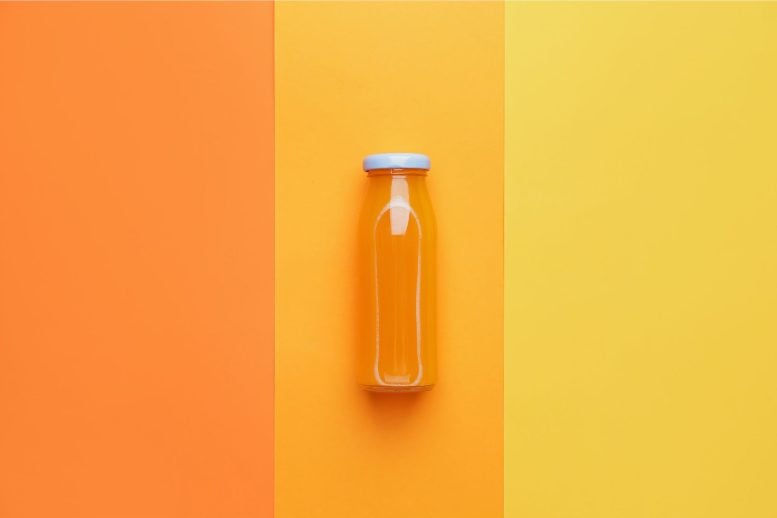
UMass Amherst survey seeks to improve the food industry’s understanding of consumer attitudes toward sustainable packaging and to guide consumers toward more eco-friendly options.
A new study revealed that while consumers preferred glass for its perceived sustainability, cartons are actually the most energy-efficient and sustainable packaging option for single-serve orange juice, contrary to popular belief.
Which packaging type for a 12-ounce, single-serve container of orange juice would you choose as the most sustainable option:
- Aluminum/canned, made with recycled material;
- Carton, described as biodegradable/compostable;
- Glass, 100% recyclable; or
- Plastic, described as biodegradable/compostable?
If you were like the U.S. consumers surveyed by food scientists in a University of Massachusetts Amherst study, you’d prefer glass and believe it was the most sustainable choice. And you all would be mistaken.
“Glass was the most sought-after and most highly esteemed packaging type,” says Nomzamo Dlamini, lead author of the paper recently published in the journal Sustainability. Dlamini, a food science Ph.D. candidate, was a recent visiting Fulbright scholar from the University of Pretoria in South Africa studying in the UMass Amherst lab of senior author Alissa Nolden, assistant professor of food science. “But it turns out, glass is actually among the least sustainable if you look at the whole packaging lifecycle,” Dlamini added.

Misconceptions and Realities of Packaging Sustainability
When asked to rank the packaging choices from their perception of the most to least sustainable, overall the consumers responded: glass, carton, aluminum, and plastic.
Though food packaging sustainability varies depending on the type of product and packaging, the size and weight of the container, and other variables, in the case of the single-serve orange juice, a carton would be the most sustainable, followed by plastic, then canned, and, finally, glass.
This came as a surprise even to Dlamini. “I was shocked to read the lifecycle assessment from the experts that it takes so much energy to produce glass and recycle it – much more than what it takes to make or recycle plastic,” she says.
The study states, “The production and end-of-life impacts of plastic are less than that of glass, plastic is lighter and thus requires less energy to transport, furthermore, the aseptic sealing process of plastic containers using steam is less energy demanding than the retort system used for glass.”
Consumer Choices and Industry Implications
The study aimed to understand the motivation behind consumers’ packaging choices, while also weighing price, lifestyle, and other attitudes. In turn, the data can help industry experts understand what consumers think, believe, and prefer, and educate them on how to make more sustainable choices.
“We designed a questionnaire using a method called conjoint analysis, which mimics a real-life situation where you’re presented with various options and you have to make a trade-off,” Dlamini says. “And we try to understand at the end of the day, what matters to people. The whole idea behind the study was to get an understanding of what people think and what drives their choices.”
Nolden points out that while many consumers expressed an intention to purchase sustainable packaging, in the end, the top motivating factor was the price – particularly the lowest price – followed by packaging type, product claim, and packaging claim.
So, the ideal orange juice option – culled from the 847 adult consumers who answered the online survey – was priced at $1.10 per 12 fluid ounces, packaged in glass, locally produced, and labeled as 100% recyclable.
The message to the food industry is that consumers are motivated to choose sustainable packaging, as long as the price is right. “These sustainable packaging options should be clearly labeled as such, effective (e.g. not defective or just as durable as conventional packaging), and affordable to increase consumers’ motivation and adoption of sustainable packaging for food and beverages,” the paper states.
Ultimately, there is something even more important than choosing the best packaging when it comes to consuming food with a focus on sustainability.
“Overall, while packaging choices contribute to environmental outcomes, the most impactful and practical way consumers can contribute to sustainability efforts is to reduce or avoid food waste,” the paper concludes.
Reference: “Unpacking Consumer Preferences: Perceptions and Sustainability of Packaging Material for Orange Juice” by Nomzamo N. Dlamini, Emily J. Mayhew and Alissa A. Nolden, 19 July 2024, Sustainability.
DOI: 10.3390/su16146202
6 Comments
Sure, go after the package of orange juice! Pay no attentionto fertilizer industry, textile industry, steel industry, construction and transportation. It’s all orange juice”s fault.
Wake up, idiots! At this point EVERYTHING is bad for the planet. There’s far too many of us and we’re wasting far too many resources. Whatever you do, were gonna pollute.
Correct
Don’t buy single serve. That’s the mistake.
Maybe because people are becoming aware plastics and cartons generally aren’t biodegradable or compostable, especially when they’re described and marketed as such. Before making broad assertions ignoring obvious contradictions based on a consumer survey, UMass Amherst should consider actual recycling statistics, for example how much of the plastic put in recycling bins gets recycled versus how much glass, or how many “compostable” items actually turn to compost in a compost bin. Glass is reusable indefinitely and then turns back into sand. Their favorite carton is usable only once while still made of plastic and petrochemical waxes anyway; if you don’t believe me, fold a sheet of paper into an envelope and fill it with orange juice.
I hate studies that feign feel-good environmentalism by deceptively marketing products. This study declared no source of funding at all. I’m sure they’re all doing this for free. UMass has been in the news for that, as in “Millions In Corporate Funding Flow Into UMass Research With Little Transparency” (New England Public Media, Nov 20 2020). Who knows who actually funded this.
Thanks to an incredible caring wife, I have drunk only fresh home-squeezed OJ for the past several years. There is no better way! We buy 40 pound boxes and one box lasts about a month at a glass a day. A healthy alternative!
This study neglects what I think is the most sustainable beverage-packaging option, one that I think was commonly used until about 60 years ago: refillable deposit glass bottles.